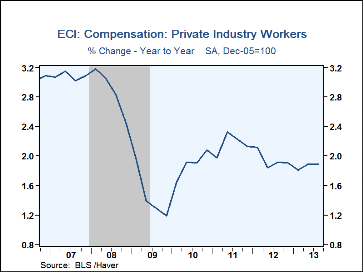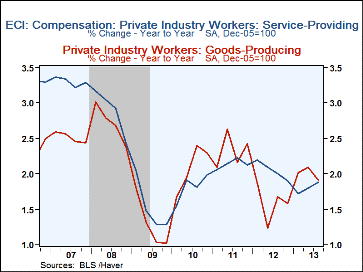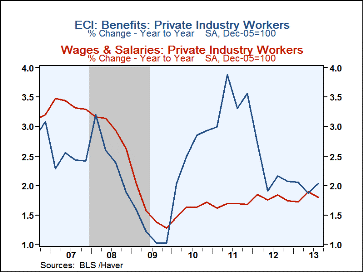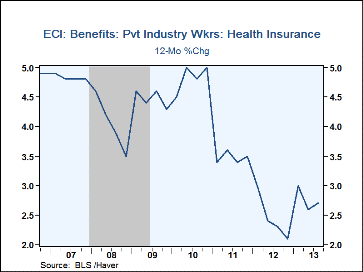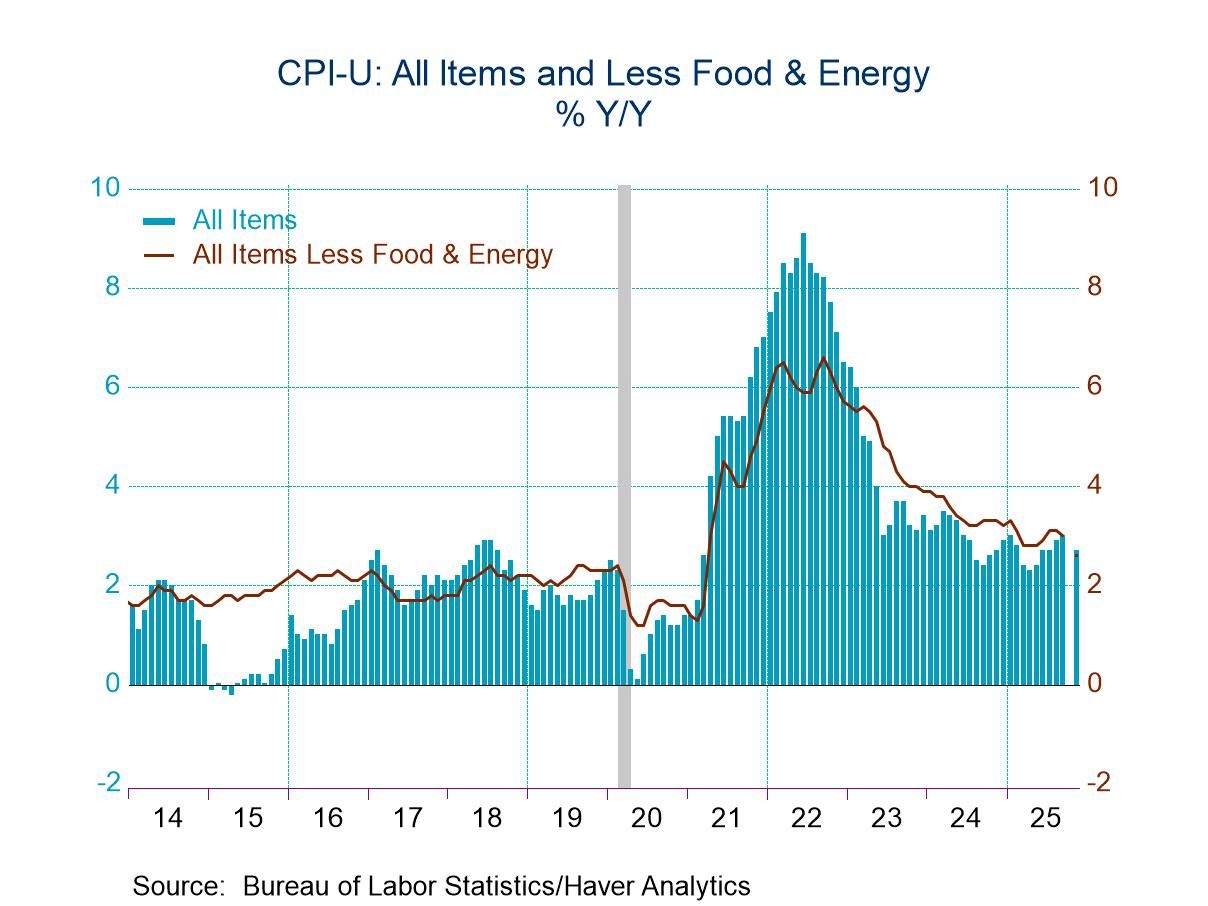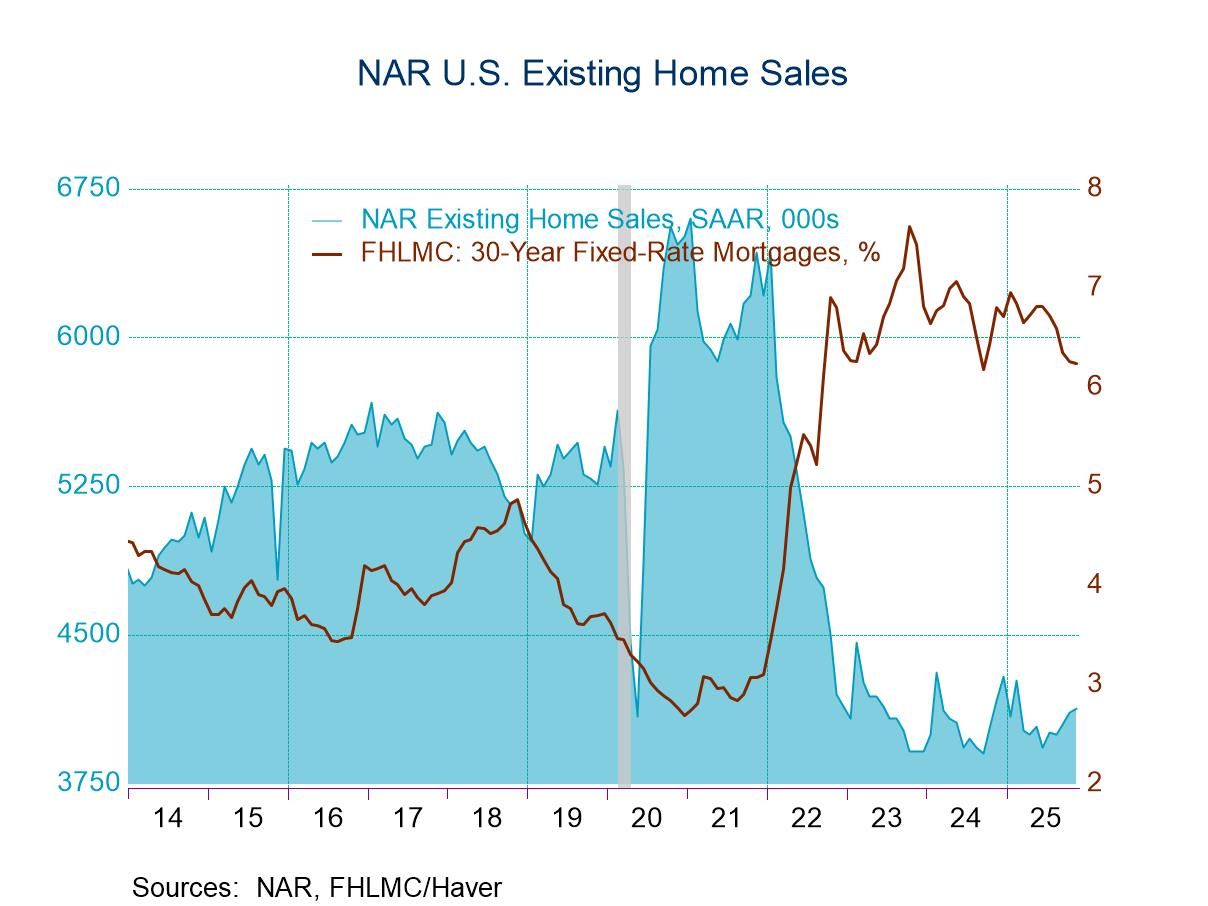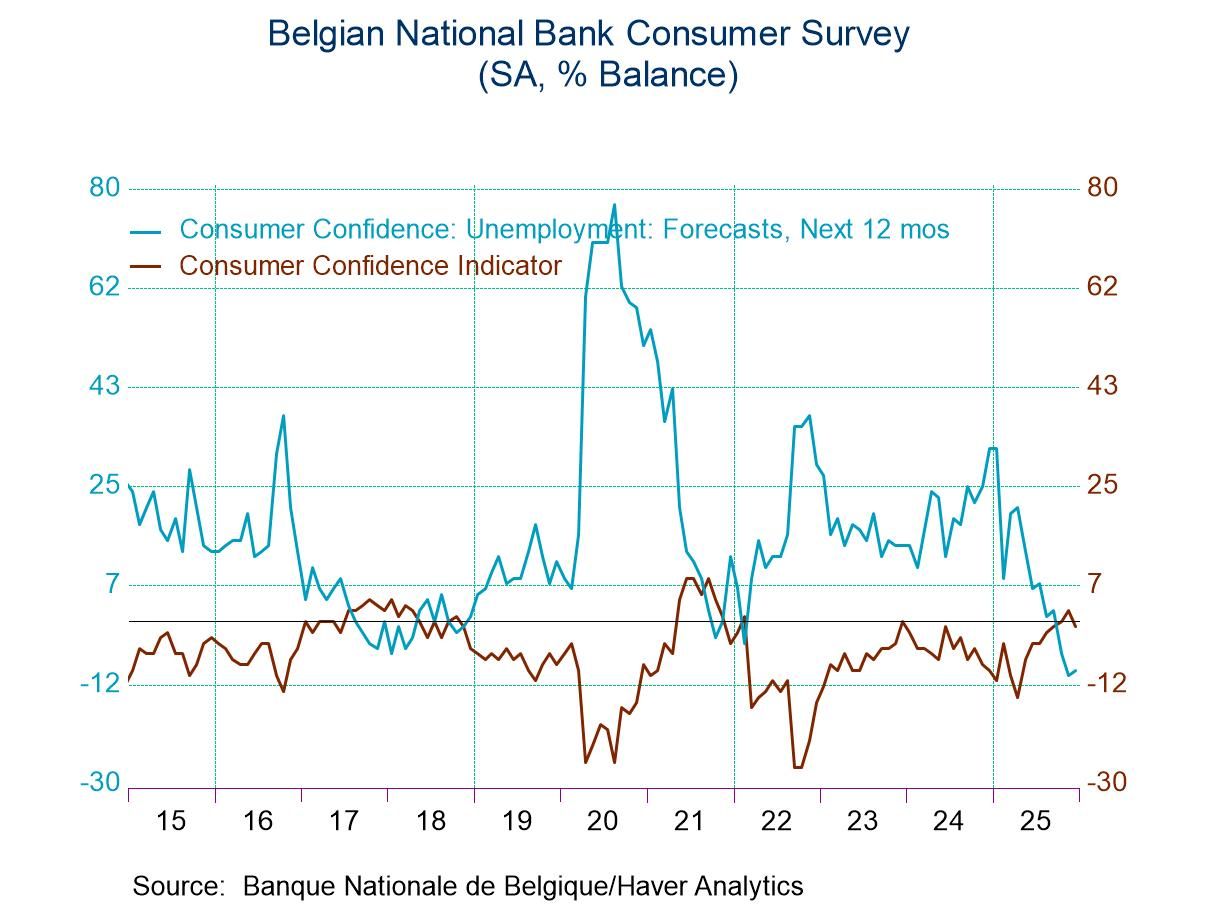 Global| Nov 19 2013
Global| Nov 19 2013U.S. Employment Cost Index Gain Paced by Benefits Increase
by:Tom Moeller
|in:Economy in Brief
Summary
The employment cost index for private industry workers increased 0.4% (1.9% y/y) in Q3'13, following an unrevised 0.6% rise in Q2. The result was weaker than consensus expectations for a 0.5% gain. Benefit costs increased 0.6% (2.0% [...]
The employment cost index for private industry workers increased 0.4% (1.9% y/y) in Q3'13, following an unrevised 0.6% rise in Q2. The result was weaker than consensus expectations for a 0.5% gain.
Benefit costs increased 0.6% (2.0% y/y), the strongest gain since Q4'12. Management, professional & related industry workers realized 0.8% growth (2.1% y/y) in benefits while sales & office workers saw a 0.7% increase (2.4% y/y). Service occupations workers had a 0.5% rise (1.7% y/y) in benefits while production transportation & materials moving workers had 0.2% growth (1.3% y/y). Health benefits for private industry workers rose 2.7% y/y, roughly half the peak rate of growth in 2010.
Wages & salaries of private industry workers gained 0.3% (1.8% y/y), the weakest rise since Q4'12. Information sector workers saw a 0.5% increase (2.0% y/y) in wages while the education & health services industries realized 0.4% growth (1.8% y/y). Wages in financial activities rose 0.3% (2.1% y/y) but workers in leisure & hospitality had only a 0.1% wage uptick (1.0% y/y).
Total compensation for state & local government workers rose 0.4% (1.7% y/y). That reflected a 0.7% rise (1.9% y/y) for public administration workers and a 0.2% gain (1.4% y/y) in education & health services.
The employment cost index figures are available in Haver's USECON database. Consensus estimates come from the Action Economics survey, carried in Haver's AS1REPNA database.
| ECI- Private Industry Workers (%) | Q3'13 | Q2'13 | Q1'13 | Q3 Y/Y | 2012 | 2011 | 2010 |
|---|---|---|---|---|---|---|---|
| Compensation | 0.4 | 0.6 | 0.4 | 1.9 | 1.9 | 2.2 | 1.9 |
| Wages & Salaries | 0.3 | 0.6 | 0.5 | 1.8 | 1.8 | 1.7 | 1.6 |
| Benefit Costs | 0.6 | 0.4 | 0.4 | 2.0 | 2.2 | 3.4 | 2.6 |
Tom Moeller
AuthorMore in Author Profile »Prior to joining Haver Analytics in 2000, Mr. Moeller worked as the Economist at Chancellor Capital Management from 1985 to 1999. There, he developed comprehensive economic forecasts and interpreted economic data for equity and fixed income portfolio managers. Also at Chancellor, Mr. Moeller worked as an equity analyst and was responsible for researching and rating companies in the economically sensitive automobile and housing industries for investment in Chancellor’s equity portfolio. Prior to joining Chancellor, Mr. Moeller was an Economist at Citibank from 1979 to 1984. He also analyzed pricing behavior in the metals industry for the Council on Wage and Price Stability in Washington, D.C. In 1999, Mr. Moeller received the award for most accurate forecast from the Forecasters' Club of New York. From 1990 to 1992 he was President of the New York Association for Business Economists. Mr. Moeller earned an M.B.A. in Finance from Fordham University, where he graduated in 1987. He holds a Bachelor of Arts in Economics from George Washington University.


